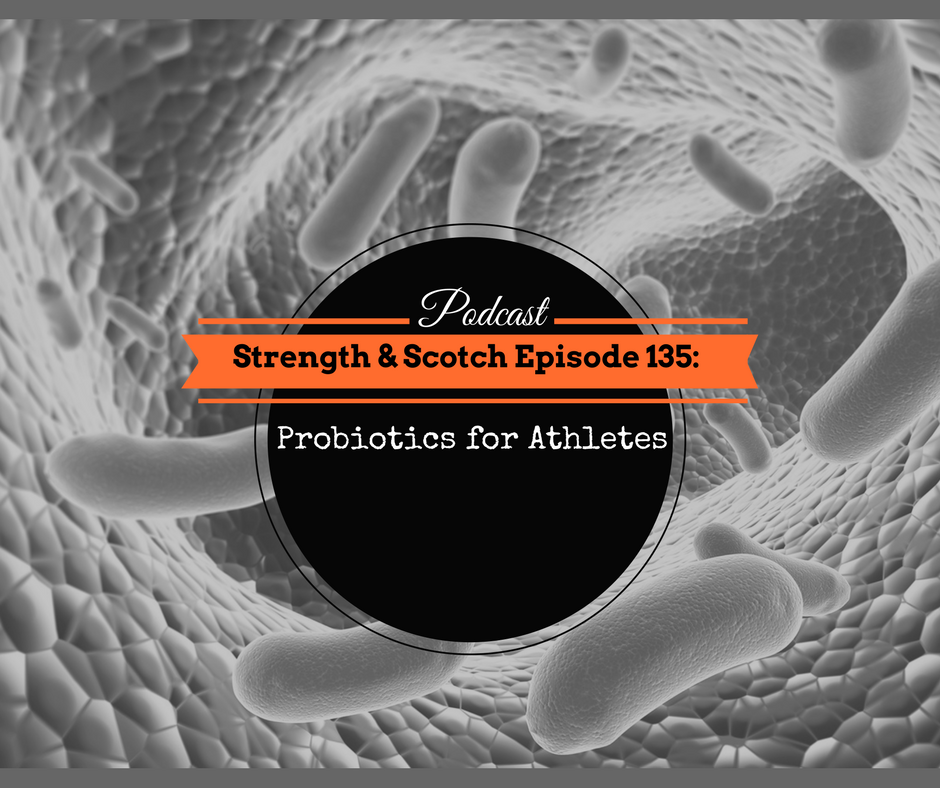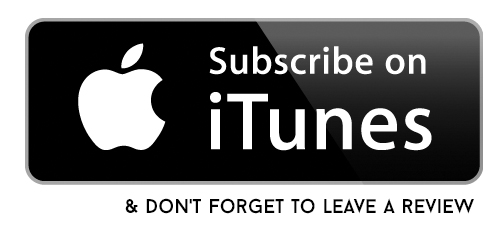SS 135 – Probiotics for Athletes
Episode 135 Show Notes
In this episode, Grant and Heavey talk about how probiotics can actually help athletes in mitigating the negative effects of intense exercise. They’re also throwing in a mixed bag of topics related to basketball, cool wireless AirPods, and swallowing balloons for weight loss.
[01:33] Basketball and Balloons, Accidents and Weight Loss
Grant thinks he broke his nose from playing basketball over the weekend. His opponent’s elbow accidentally hit his nose so hard that he was bleeding for about four to five hours. Basketball can be really treacherous. The first season Heavey played, he remembers going up for a rebound and coming down he accidentally hit a guy just below the eye with his elbow. He was bleeding everywhere and two weeks later, he had a bunch of stitches on his eye.
One of the things Grant thinks would really help him with his basketball game is if he dropped some weight. He read an article that talks about an FDA-approved nonsurgical, ten-minute procedure called the Obalon Balloon System. You basically go to a doctor’s office and you swallow a balloon, which is attached to a cord. They blow up the balloon in your stomach and then you go about your life until they take it out in six months. The average weight loss after six months for people is 37 pounds.
Essentially, the balloon is pumped out inside your stomach so that it occupies space in your stomach causing you to eat less since the pressure that the balloon pushes up against the side of the stomach triggers satiety signaling so you feel full. Heavey though prefers to take the traditional route when it comes to interventions for improving body composition. Grant also read an article on Time Magazine about a girl who did this for six months and she lost 40 pounds. Additionally, 92% of people keep the weight off six months after it’s removed. But Heavey would like to see a longer duration follow up after it has been removed. He explains how this concept is not teaching good habits since they continue to eat until they’re full then once you pull out the balloon and they get full with a new limit, they’re going to mess things up again and it’s not teaching them anything.
[07:04] The AirPods Experience
Recently, Grant and Heavey both got Apple’s AirPods, which are wireless headphones. They look like the regular earbuds that come with your iPhone but they literally have no wires. They consist of two little pieces that come with a case that is just about the size of a floss case.
Grant actually loves it and he’s now encouraged to exercise more and listen to music more. He finds them to be very convenient to go back and forth to his phone, desktop, or laptop. He thinks it’s neat the way you just pop it out of your ear and the music automatically stops.
Another thing that’s neat about the AirPods is they didn’t come out at all no matter how hard Grant tried to shake his head and move around. Heavey actually put them on while he was taking a piss and was a bit scared he would drop them but good thing they didn’t. Plus, Heavey’s wife, Nicole, thinks it looks stupid that it’s gotten Heavey conscious about wearing them. Grant thinks otherwise. In fact, one of the reasons Grant got them is the convenience of using them while traveling.
[12:25] Getting Sick from Intense Exercise
Grant and Heavey have talked a lot about how there’s a sweet spot with exercise. Too little and you’re not getting much benefit while too much can actually have many negative side effects too. One of the negative side effects is exercising into getting sick. Tons of exercise can lead to immune suppression which makes you more susceptible to infections. This is especially true for athletes who train very hard for a living.
Grant agrees with Heavey saying how this seems like a vicious cycle if your immune system is down and then you go into a gym where you’re close to other people so you’re more exposed to germs knowing that the gym is not the most sanitary of places.
Heavey adds that super intense activity opens up the short window of increased risk for infection that lasts up to a few hours after a training session and this can add up if you’re training hard often. This just the hypothesis though and it’s not something they’ve proven.
[13:45] Probiotics for Athletes
Heavey found a study that looked at 33 well-trained endurance athletes. The study recognizes that the increased risk of illness exists so they wanted to see if probiotics intervention would have an impact in how sick these individuals got due to their intense training schedule.
[14:22] What Are Probiotics?
Probiotics refer to bacteria coming from fermented food and dairy products such as yogurt or sauerkraut. People also take probiotics supplements in pill form. Probiotics are a class considered to be a positive set of healthy bacteria that help promote healthy gut flora.
However, Heavey points out that no two probiotics are created equal. They have a bunch of different strains. Some are more helpful for certain things but there are also a lot of misinformation out there about probiotics.
[16:25] Protocol Overview
In the study, these 33 athletes were split in half, one half took a probiotic each day and the other half served as a control group that took a placebo. They intentionally picked strains that have been well-studied backed by research as to how well they can improve immune function. These participants took them and they continued to train for twelve weeks. During the study, they looked at immune system biomarkers before and after in each group. Unfortunately, they didn’t notice any significant differences between the groups in the biomarkers. Throughout the duration of the study, the participants were to report back any symptoms consistent with upper respiratory tract infections like cough, runny nose, or fever. If the participant reported symptoms that persisted for a minimum of two days then they counted that as an illness.
[17:50] Probiotics and Immune Function
Over the duration of this 12-week study, they had sixteen reported illnesses out of 33 people. At the end, they sorted out what groups these illnesses fell into and eleven of the illnesses belonged to the placebo group while five were in the probiotic group, which showed a significant result suggesting that more than double the illnesses occurred in the placebo group over the probiotic group. Based on the study, the probiotics seemed to support the immune function in those athletes helping prevent themselves from susceptibility to upper respiratory tract infections.
The strains have not been chosen at random. They actually used six strains. Two of them were bifidobacteria, another two were lactobacilli, as well as enterococcus and lactococcus. These are all known to support immune function and this was ultimately backed by the study.
[19:20] Study on a Wider Audience
Curious about other researches that supported the role of probiotics in immune function not only among athletes but in a wider audience, Heavey found another meta-analysis, which is a study of studies that looked at 20 randomized controlled studies at a group of healthy children and adults. They found that regular supplementation with probiotics, especially the lactobacillus and bifidobacterium strains, resulted in a moderate reduction in total sick days and duration of illness in this everyday population.
[20:20] Tryptophan and Immune Surveillance
Heavey is not sure whether we really understand what’s going on here. For one, the availability of the amino acid tryptophan may actually play a role. During intense exercise, the body breaks down tryptophan and lower levels of tryptophan decrease the body’s immune surveillance capability, which is your body’s ability to detect an issue that they need to fight off. So this is one hypothesis they wanted to track down. Maybe in the athlete group, the probiotics may mitigate lower tryoptophan level because it’s been shown that the gut microbiome can play a role in modulating tryptophan. They looked at this in the study and found no significant differences between the two groups. This implies that although we know these particular strains can help our immune system, the mechanism is still up for grabs.
[22:15] Probiotics and Prebiotics
There are a lot of speculations out there on probiotics and their benefits but research is very new, not to mention the difficulty of doing it considering there are so many different strains and a lot of research doesn’t have control over any of them. This said, it may take a while until we can have some definitive answers with regards to probiotics. It’s been shown with almost all strains that they don’t improve the status of your gut microbiome when you stop taking them so it’s been postulated that you take them to improve your gut microbiome but you have to take them forever. The idea there is to start pairing them with prebiotics, which are the raw materials that probiotics can use to grow. A prebiotic is usually a fiber source that serves as food for the bacteria. Heavey actually takes both prebiotics and probiotics and rotates what he’s taking to get varied strains over time.
[24:34] The Four Pillars of Health + Probiotics
The probiotics is an emerging field so this is something Grant and Heavey will be regularly checking in on. They will continue to present evidence as they come available. Many of this podcast’s listeners are into exercise and many consider themselves athletes so having this information to help them figure out if they want to go down this route and see if they want to mitigate some compromised immune scenarios and stay healthy. In addition to this, Heavey stresses the importance of sufficient sleep, having a varied diet, and consuming enough calories to support your activity level in helping support immune function. You can’t just band-aid it with the probiotic. This comes back to the four pillars and making sure you’re doing everything right. But adding a probiotic on top of that, especially lactobacillus and bifidobacterium, can help with immune function.
[26:30] Autoimmune Disease and Probiotics
Grant is curious about the relationship between autoimmune diseases (ex. rheumatoid arthritis and lupus) and probiotics and the gut flora. Heavey has collected a lot of research on the more severe conditions and found a close connection between autoimmunity and gut function. Mechanism-wise, there’s a path for probiotics to influence it and this has been backed by research but Heavey will have to review this first before presenting any in the future.
Links:
Check out the gear page for everything Strength & Scotch! You’ll find a listing of all the supplements and other programs we’ve discussed on the show as well as our killer t-shirts!

